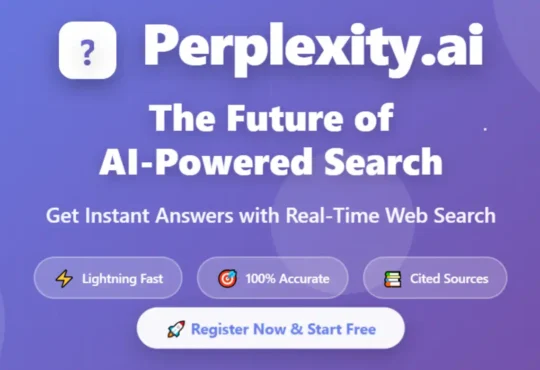Choosing the right Customer Relationship Management (CRM) system for your enterprise isn’t just about features—it’s about understanding the true cost of implementation, scaling, and long-term value. High-level CRM pricing has evolved significantly in 2025, with most enterprise solutions now operating on sophisticated pricing models that can make or break your ROI.
Understanding High-Level CRM Pricing Models
Enterprise CRM pricing typically follows three primary models: per-user monthly subscriptions, tiered feature-based pricing, and custom enterprise agreements. Enterprise-grade CRM pricing starts at approximately $150 per user/month, with comprehensive platforms easily exceeding $300 per user monthly.
Per-User Subscription Pricing
The most common pricing structure for high-level CRMs is the per-user, per-month model. This approach scales with your team size but can become expensive quickly for large organizations. Companies typically pay anywhere from $12 to $200 per user per month for their CRM software, depending on the feature set and vendor.
Tiered Enterprise Pricing
Most enterprise CRM vendors offer multiple tiers to accommodate different organizational needs:
Entry-Level Enterprise Tiers: Entry-level plans average approximately $15 per user/month, though these often lack advanced enterprise features.
Mid-Tier Solutions: Mid-tier plans hover around $60 per user/month, offering enhanced automation and integration capabilities.
Premium Enterprise: The highest tiers focus on customization, advanced analytics, and unlimited scalability.
Leading High-Level CRM Pricing Breakdown
Salesforce Enterprise Pricing
Salesforce remains the gold standard for enterprise CRM solutions, with pricing that reflects its comprehensive feature set. Salesforce offers a Starter Suite for $25 per user per month, but enterprise organizations typically require their Professional or Enterprise tiers.
The platform’s strength lies in its extensive app ecosystem. With over 4,000 apps, Salesforce CRM is superior to many competitors, making it ideal for complex enterprise workflows.
Key Salesforce enterprise pricing considerations:
- Professional: $80/user/month
- Enterprise: $165/user/month
- Unlimited: $330/user/month
- Custom implementation costs can range from $50,000 to $500,000+
HubSpot Enterprise Pricing
HubSpot has positioned itself as a user-friendly alternative to Salesforce while maintaining enterprise-grade capabilities. Sales Hub Enterprise costs $150/month per seat and provides advanced sales organizations with comprehensive CRM and sales acceleration tools.
HubSpot’s enterprise pricing includes several important considerations:
- Professional tier requires a one-time $1,500 fee for mandatory Quick Start Consultation
- Enterprise tier includes a one-time $3,500 fee for onboarding
- Service Hub Professional has a one-time onboarding fee of $750, and $3,000 for the Enterprise tier
Microsoft Dynamics 365 Pricing
Microsoft’s CRM solution offers competitive enterprise pricing with deep integration into the Microsoft ecosystem:
- Sales Professional: $65/user/month
- Sales Enterprise: $95/user/month
- Customer Service Enterprise: $95/user/month
Oracle CX Cloud Pricing
Oracle’s enterprise CRM focuses on large-scale implementations:
- Sales Cloud: $100/user/month
- Service Cloud: $100/user/month
- Marketing Cloud: Custom pricing starting at $1,000/month
Hidden Costs in High-Level CRM Implementation
Enterprise CRM pricing extends far beyond monthly subscriptions. Understanding the total cost of ownership (TCO) is crucial for accurate budgeting.
Implementation and Onboarding Costs
Professional implementation services can cost between $25,000 and $250,000, depending on complexity. This includes:
- Data migration from legacy systems
- Custom workflow configuration
- User training and adoption programs
- Third-party integrations
Customization and Development
Enterprise organizations often require custom features, reports, and integrations. Development costs typically range from $100-300 per hour for certified consultants.
Ongoing Support and Maintenance
Annual support contracts usually cost 15-25% of your total license fees. This includes:
- Technical support access
- Software updates and maintenance
- User training and certification
- System optimization services
ROI Considerations for High-Level CRM Investments
When evaluating high-level CRM pricing, consider the potential return on investment:
Productivity Gains
- Sales teams typically see 15-20% productivity improvements
- Customer service response times often improve by 30-50%
- Marketing campaign effectiveness can increase by 25%
Revenue Impact
- Better lead management can increase conversion rates by 10-15%
- Improved customer retention through better service
- Enhanced cross-selling and upselling opportunities
Cost Savings
- Reduced manual data entry and administrative tasks
- Improved forecast accuracy reducing inventory costs
- Streamlined processes eliminating redundant tools
Key Factors Affecting Enterprise CRM Pricing
Number of Users and Seats
The primary cost driver for most CRM systems is user count. Enterprise organizations should plan for:
- Current active users
- Anticipated growth over 3-5 years
- Seasonal staffing fluctuations
- External user access requirements
Feature Requirements
Advanced enterprise features significantly impact pricing:
- Advanced analytics and reporting
- AI-powered insights and automation
- Custom object creation and management
- Advanced security and compliance features
- Multi-currency and international support
Integration Complexity
The more systems your CRM needs to integrate with, the higher the total cost:
- ERP system connections
- Marketing automation platforms
- Financial software integration
- Custom API development
- Third-party data enrichment services
Industry-Specific Requirements
Certain industries have specialized CRM needs that affect pricing:
- Financial services require enhanced security features
- Healthcare needs HIPAA compliance capabilities
- Manufacturing requires complex product configuration tools
- Real estate demands specialized property management features
Comparing High-Level CRM Pricing: 2025 Market Analysis
CRM for sales can cost between $12 per user per month and $300 per user per month, but enterprise solutions typically fall in the upper range of this spectrum.
Best Value for Large Enterprises
For organizations with 500+ users, consider:
- Salesforce Enterprise – Best for complex, highly customized workflows
- HubSpot Enterprise – Ideal for marketing-focused organizations
- Microsoft Dynamics 365 – Perfect for Microsoft-centric environments
- Pipedrive – Cost-effective for sales-focused teams
Pricing Negotiation Strategies
Enterprise CRM vendors often provide significant flexibility in pricing:
- Multi-year contracts can reduce costs by 15-30%
- Volume discounts typically apply at 100+ users
- Bundled services often provide better value than individual components
- Annual payment terms usually offer 10-20% discounts
Making the Right High-Level CRM Investment
Selecting the right enterprise CRM requires balancing upfront costs with long-term value. Consider these factors:
Scalability Planning
Your CRM should accommodate growth without requiring costly migrations. Evaluate:
- User scaling capabilities
- Data storage limitations
- Performance under increased load
- Geographic expansion support
Total Cost of Ownership (TCO) Analysis
Calculate the 5-year TCO including:
- License fees and subscriptions
- Implementation and onboarding costs
- Ongoing support and maintenance
- Training and certification expenses
- Custom development and integrations
Vendor Lock-in Considerations
Understand the implications of switching costs:
- Data export capabilities
- Integration dependencies
- User training requirements
- Contract termination terms
2025 Trends in Enterprise CRM Pricing
The CRM market continues evolving with several key trends affecting pricing:
AI and Machine Learning Integration
Advanced AI features are becoming standard but often come at premium pricing tiers. Features include:
- Predictive lead scoring
- Automated data entry
- Intelligent conversation routing
- Predictive analytics and forecasting
Industry-Specific Solutions
Vendors increasingly offer industry-specific packages that may provide better value than generic enterprise solutions.
Flexible Consumption Models
Some vendors now offer usage-based pricing for specific features, allowing organizations to pay only for what they use.
Conclusion: Maximizing Your High-Level CRM Investment
High-level CRM pricing represents a significant investment that can transform your customer relationships and business processes. Advanced security features and enterprise-grade compliance capabilities are essential but come at a premium.
The key to success lies in thorough planning, accurate TCO calculation, and selecting a solution that aligns with your long-term business strategy. While the initial investment may seem substantial, the right enterprise CRM can deliver ROI within 12-18 months through improved efficiency, better customer relationships, and increased revenue opportunities.
Consider partnering with certified implementation consultants to ensure successful deployment and maximize your investment value. Remember that the cheapest option isn’t always the most cost-effective when considering long-term scalability and feature requirements.
For businesses ready to make this investment, the enterprise CRM market in 2025 offers more powerful, flexible, and cost-effective solutions than ever before. The key is choosing the right partner for your specific needs and growth trajectory.
For more insights on CRM implementation and business technology solutions, explore our comprehensive guides on CRM best practices and enterprise software selection.
External Resources:
- Salesforce Pricing Guide
- HubSpot CRM Pricing
- Microsoft Dynamics 365 Pricing
- Gartner CRM Magic Quadrant
Related Articles:
- Complete Guide to CRM Selection
- Enterprise Software Implementation Best Practices
- ROI Calculation for Business Software
Thank you for visiting our website, TechsBucket. If you liked the article, then share it with others.


